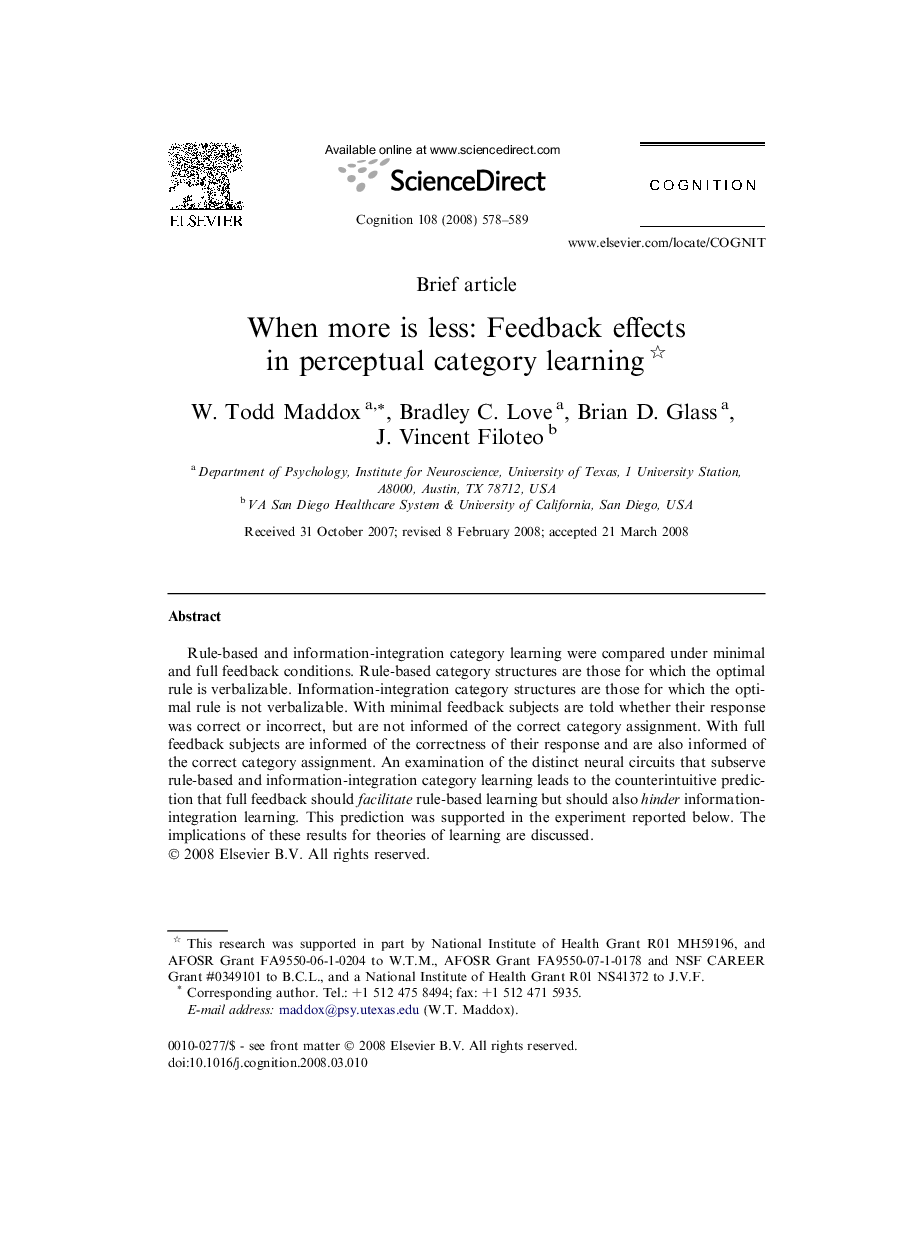| Article ID | Journal | Published Year | Pages | File Type |
|---|---|---|---|---|
| 927095 | Cognition | 2008 | 12 Pages |
Rule-based and information-integration category learning were compared under minimal and full feedback conditions. Rule-based category structures are those for which the optimal rule is verbalizable. Information-integration category structures are those for which the optimal rule is not verbalizable. With minimal feedback subjects are told whether their response was correct or incorrect, but are not informed of the correct category assignment. With full feedback subjects are informed of the correctness of their response and are also informed of the correct category assignment. An examination of the distinct neural circuits that subserve rule-based and information-integration category learning leads to the counterintuitive prediction that full feedback should facilitate rule-based learning but should also hinder information-integration learning. This prediction was supported in the experiment reported below. The implications of these results for theories of learning are discussed.
